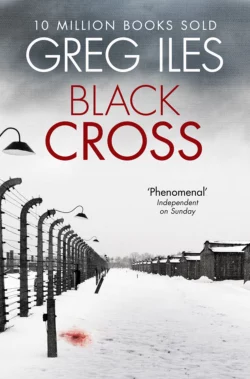Black Cross

Greg Iles
Тип: электронная книга
Жанр: Современная зарубежная литература
Язык: на английском языке
Стоимость: 619.36 ₽
Статус: В продаже
Издательство: HarperCollins
Дата публикации: 16.04.2024
Отзывы: Пока нет Добавить отзыв
О книге: A thriller that is ‘on fire with suspense’ (Stephen King) from the New York Times No. 1 bestseller Greg Iles. A secret mission into the dark heart of the Third Reich – to commit an unimaginable act of destruction, in the name of peace.In January 1944, four people hold the fate of the world in their hands.They are not statesmen or generals, but an American doctor, a German nurse, a Zionist killer and a young Jewish widow. These four people are brought together in a place almost beyond imagination: a small SS-run concentration camp harbouring a weapon so lethal that it could wipe out an entire D-Day invasion force.What they are forced to do in the name of victory – and survival – shows with terrible clarity that in a world where all is at stake, war can have no rules…